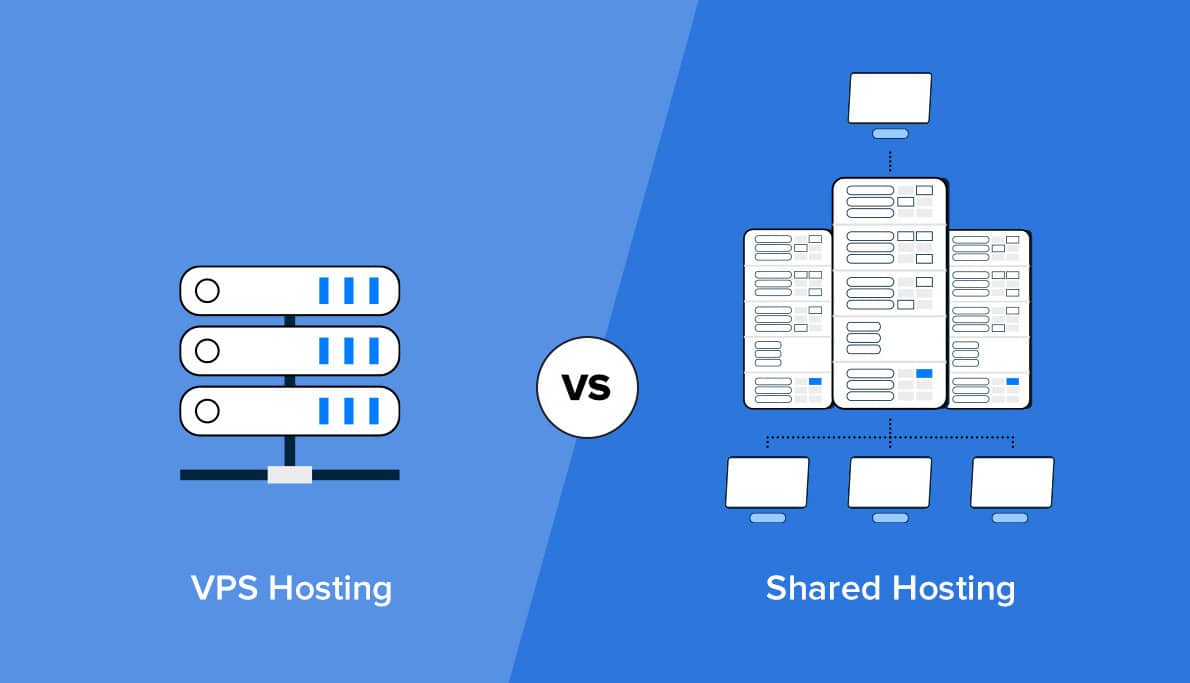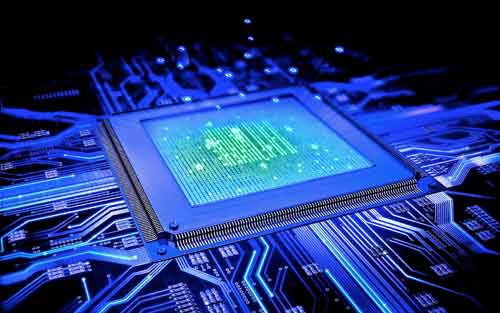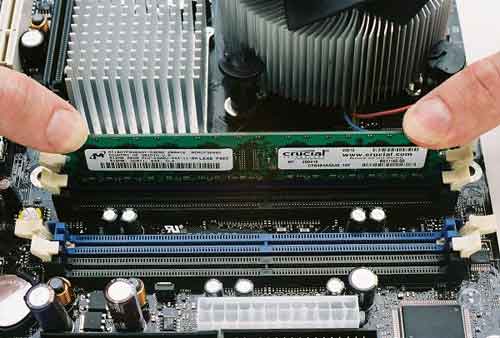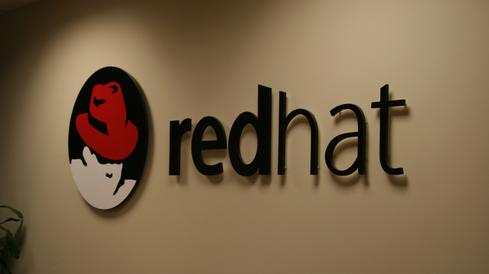
In this lesson, the hosting MYHOST’s team of hosting and server experts explains web hosting resources and their importance in detail. These resources include the CPU, RAM, the write and read speed of the hard drive, their relationship to each other, and more.
As we mentioned earlier in the MYHOST of Hosting website, web hosting is a web server or part of it or even a group of servers linked to each other to form a network of servers that are closer to a huge server in what is known as cloud hosting.
This server is a computer that has a range of resources such as processor capacity, file storage capacity and RAM size.
We received many messages asking about which hosting resource affects the speed and performance of the site.
We decided in theMYHOST of Hosting to write a full article on the topic because we did not find a topic on the Internet that talks about the topic at length or explains the importance of each hosting resource for the site and its impact on the speed or performance of the site.
So we liked to do this lesson so that it serves as a resource for everyone looking for the impact of hosting resources on site performance and speed.
This lesson is part of
Hosting Basics Series
- What is web hosting?
- What is a data center?
- What is a domain?
- What is DNS?
- What is a server?
- What is a bandwith?
- Hosting resources explained
- Compare types of hosting
- What is shared hosting?
- What is cloud hosting?
- What is a VPS virtual server?
- What is a ressler?
- What is cPanel?
- Is there unlimited hosting?
- What is WordPress?
- How to create a site
The importance of the CPU processor and its impact on site speed and performance
First, the Central Processing Unit is the brain of the server or the mind of your site itself, and all operations are done by a way that controls all parts of your site.
In the field of web hosting, the term processor or CPU means the number of processors available to your account and may reach 24 processors in some large dedicated servers, and please pay attention to the fact that often the processor is referred to as “Core” and some companies determine for you a certain percentage of server servers that you can access because they are divided among all users according to their respective plans.
CPU function
The processor is responsible for carrying out the tasks and functions of the server, and these functions range from downloading data from the hard drive to the RAM (see the section on the ram below), executing code or scripts, performing operations on databases, sending the content of the site to the visitor, and other operations. The wizard thus acts as a coordinator between hosting resources.
The importance of the processor for hosting and when you need to increase the processor
As mentioned above, the processor is very important to carry out hosting tasks and coordinate between hardware and various hosting resources. Therefore, the processor is important if your site uses databases and relies on a specific software script, and in any case, increasing the number of processors or cores “Cores” will lead to a clear improvement in the performance of your site, but there are some cases that require an increase in processor capacity or the number of processors.
Cases that require an increase in processor capacity or the number of cores
- The number of visitors is very large.
- Highly resource-intensive extensions such as extensions and templates.
- Code is not up to date or misspelled.
- The PHP setup is not optimized or poorly done.
The importance of RAM and its impact on site speed
First, RAM or RAM [English: RAM, which is an abbreviation for Random Access Memory] and means “random access memory” and far from going into the reason for its name by this name, which is that the data in it can be accessed by the processor randomly, meaning that it has the ability to access any part of the data directly, and this is the reason for the speed of its high response and the speed of extracting the data stored on it, unlike the “Serial Access Memory” SAM that requires that all data be passed from the beginning to its end if you want to reach a certain piece of data.
What is the function of RAM in the server?
The function of RAM in general is caching of data, and in order to explain to you in a simple way, when you open or run a program, the program files are copied from the hard drive to the RAM and the processor begins to obtain the program files directly from the RAM, and therefore the files are accessed very quickly compared to bringing them directly from the hard drive.
Perhaps the closest example of this is when you run many programs and large programs such as photo or video editing programs, you will feel very slow in the speed of the device and stop working if these programs consume the RAM space, and the device will not return to work normally except when there is space in the RAM, whether by closing some programs that work or increasing the RAM capacity.
The importance of RAM for the site and its impact on its speed and performance
As I said earlier, the function of RAM is to store data, but now you can know the importance of RAM and its impact on the speed and performance of the site as it enables the processor of the server (hosting server) to access data faster and thus reduce the time it takes the server to fetch your site data and send it to the user or visitor.
Thus, increasing the RAM capacity of the hosting directly leads to an increase in the speed of websites because the data fetched from the RAM is much faster than that fetched from the hard drive. Perhaps one of the most common problems that may appear to you if the RAM capacity is less than what your site needs is:
- Error 500 Internal Server Error
- Error 503 Service Temporarily Unavailable
Often, these errors appear when your site consumes the entire RAM, and the most common is the first mistake that you encounter a lot when you visit many sites, and if you write to hosting support, it will tell you that your site consumes the RAM allocated to it and that you need to increase the RAM for your site or upgrade the hosting (pay an additional cost).
But to be honest with you, the company would like to get the highest financial return and therefore will advise you to upgrade the hosting plan and you will find this error a lot if you use poor shared hosting, but from personal experience, the reason for this error is in most cases a programming error from one of the add-ons or templates of your site that consume a large area of RAM without needing it, and while your purchase of additional space will solve the problem, but in fact You treated the symptoms, not the disease itself, and you pay for the extra ram and you don’t need it.
The effect of increasing the RAM capacity on site speed and performance
Increasing the RAM capacity leads to the following:
- The data fetched from RAM is much faster than that downloaded from the disk itself.
- Increased RAM capacity ensures that the processor will not have to fetch data from the hard drive.
- Increasing the capacity of the RAM will make the programming languages that write in memory, the most famous of which is “PHP” run very quickly and prevent the emergence of errors.
- In general, increasing the RAM capacity will increase the speed of the site, and will enable it to perform more and more complex tasks.
I/O Input/Output
It is not a very important part in the field of hosting and will not clearly affect the work of the site, especially if your site does not rely much on databases or on broadcasting visual content. In most cases, you will not notice that your site stops due to the consumption of I/O capacity, but you will only find a delay in the response, because its function is the speed of transferring data from the hard drive to the RAM, and therefore if your site consumes the capacity allocated to it, the time required to transfer data from disk to RAM will be long.
When do you need to increase I/O
In short, if your site is very large and deals with a large number of database tables or depends on large databases, and also if your site depends on streaming visual content, you will probably need to increase the I/O capacity so that your site works very well. But most regular sites do not need to increase this source, so you will not find many hosting companies interested in displaying this part in the hosting features.
Disk capacity or hard drive storage space
Certainly, you know the importance of disk space, as it is the space in which your site files are hosted, and therefore the more your site needs to store more files, the more storage space you need. And the type of disk itself is very important, there are regular disks that are slow to respond, and there are solid state drives “SSDs”, which are characterized by fast response and thus give the speed of your site a big boost and most hosting companies add additional value if you want to use SSD disks, but there are other companies that do not do that, you can learn about them in our article about the best paid hosting company.
How to choose a dedicated server or a virtual server VPS
If you want to buy a good full server or even a VPS server, there are a few things you should keep in mind.
RAM and processor capacity
The stronger the processor, the more it entails an increase in the RAM capacity so that the system is stable, and these are some common and preferred choices:
- Number of processors: 2 RAM capacity is preferably from 2GB – 4GB
- Number of Processors: 4 RAM capacity is preferably from 4 GB – 8 GB
- Number of Processors: 8 RAM capacity is preferably 8GB – 16GB
- Number of Processors: 16 RAM capacity is preferably from 16GB – 32GB
- Number of Processors: 24 RAM capacity is preferably from 24GB – 64GB
In general, the higher the consumption of “Bandwidth”, you should increase the RAM capacity. The more the processor consumes, the more power you should have.
RAM, system core, and processor capacity
- If the number of processors: 2 and the RAM capacity is less than 4 GB, it is recommended that the system core be 32bits.
- If the number of processors: 2 and the RAM capacity is 4 GB or more, it is recommended that the system core be 64bits.
- If the number of processors is greater than 2, it is recommended that the system kernel be 64bits.
cPanel and most other control panels currently run on 64bits systems.
Server OS type
It is always preferable to use Linux systems, especially distributions that are built on redhat, and the reason behind this is that these systems support all control panels and software that are used in the field of web hosting. There are also Debian systems that sometimes outperform redhat systems in terms of stability and stability.
Summary: Hosting resources must be balanced!
After reading the article, you may go directly to increase the capacity of one of the hosting resources based on your need, and this is true, but there is something that you must keep in mind, which is the need for harmony between hosting resources, so you should not increase one resource at the expense of another, such as doubling the ram two or three times while the processor is weak.
In that case, your increase in RAM will be useless or will not give you the desired performance. But it is recommended that the more powerful the processor, the more RAM capacity is required for your site to be stable.
In the end, if you have a question or question, the team of the MYHOST of Hosting is ready to answer you, God willing, in the comments section below.



